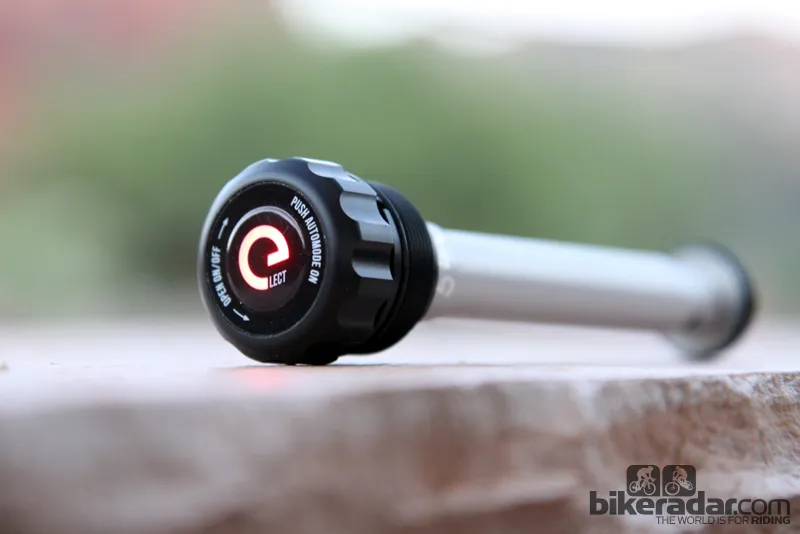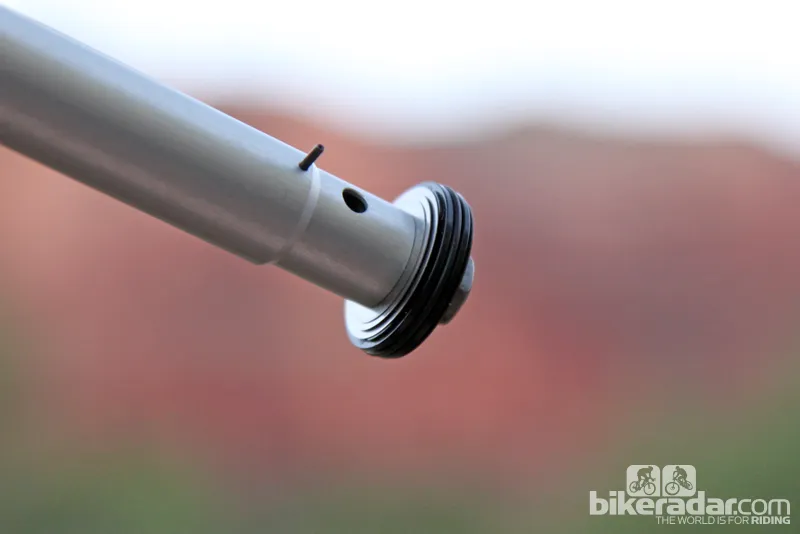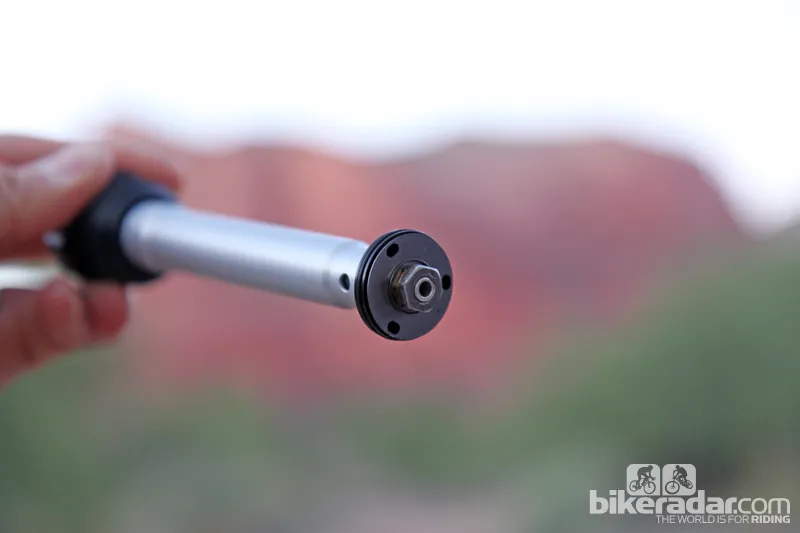Following RockShox and Fox, Magura has jumped into the electronic suspension game with a new auto-lockout technology called eLECT. It's surprisingly simple, lightweight and, best of all, it actually seems to work.
The beauty of the new eLECT compression damper lies in the simplicity of its operation. The system automatically determines the fork's angular orientation relative to the ground using a 3D accelerometer – just like what's found in many modern smartphones. In other words, eLECT knows whether you're traveling on level terrain, heading downhill or climbing uphill.
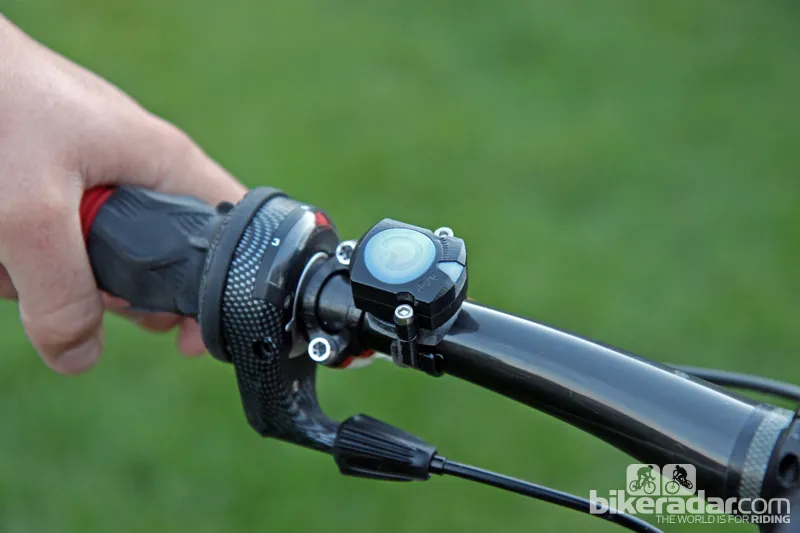
The Bluetooth wireless remote can be used for manual adjustments
When using a standard setup procedure, the system remains open when riding on flat terrain or heading downhill but the front end is locked out on climbs. Users can also trick the system to better suit their own particular needs by calibrating the system on something other than level ground. Or, riders can simply operate in manual mode using the ANT+-enabled wireless handlebar remote switch. There's even a 'free fall' mode to ensure a soft landing on jumps and drops even if the fork is tilted in an upward orientation (such as when landing rear wheel first, for example).
The eLECT accelerometer can also detect if you hit a patch of bumpy terrain when heading uphill, opening the system with a claimed 0.2-second reaction time to help keep the wheel on the ground but then locking out again once things smooth out. A basic blow-off valve is on hand to handle the first few impacts before the system opens up.
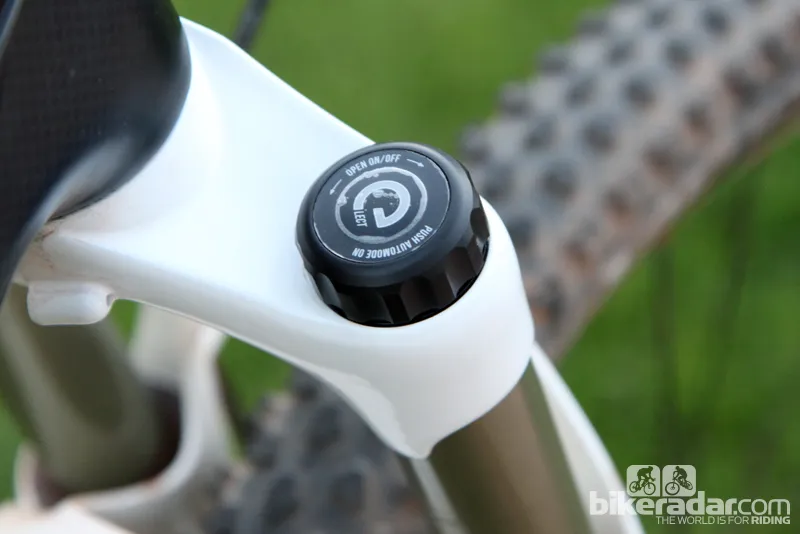
The beauty of the design is its simplicity - eLECT is light, clean and functional
Magura has chosen a similarly straightforward path for the eLECT damper's mechanical design. A small internal servo rotates a stainless steel shim with three holes in it on the bottom of the compression piston. Rotating the shim so as to close the matching ports in the compression piston locks out the fork; otherwise, the damper behaves like a conventional pyramid-type shim stack as is used in nearly every modern suspension fork.
Smart design creates a low drain on the internal Li-ion battery. The shim itself weighs nearly nothing and the motor is only used to switch between open and locked modes. Likewise, the on-board LED indicators are only lit when changing modes or calibrating the system.
Claimed run time in auto mode is 40 hours of riding (on average); manual mode boosts that figure to 60 hours. In either case, the damper's small internal Li-ion battery is recharged with a standard micro-USB port hidden beneath the thread-on cap. The remote is powered with a watch-type battery. In the event of a total power loss or system failure, the shim is spring-loaded to default to open mode.
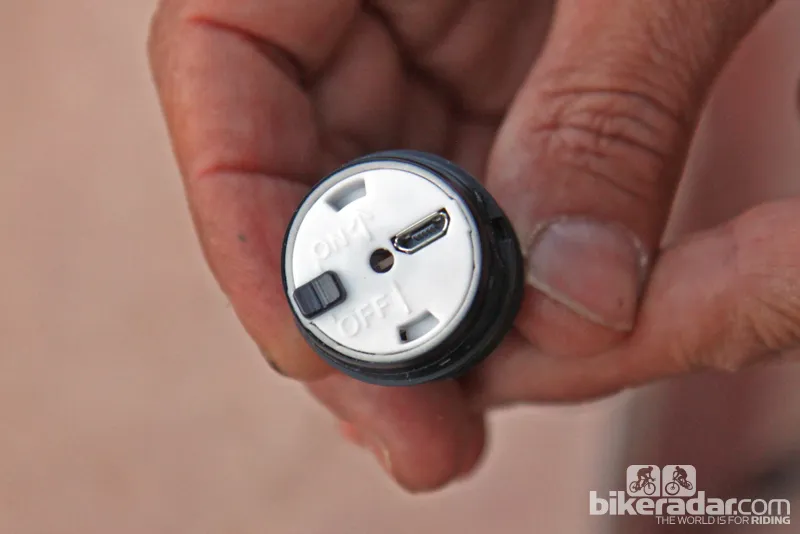
Underneath the cap lie the master arming switch and the micro-USB charging port
Users have become accustomed to electronic-enhanced suspension adding weight relative to a fully mechanical system, but in this case, the new eLECT system will now be the company's lightest option. The damper itself weighs just 81g and the remote adds another 12g, making it 15g lighter than a Magura DLO2 damper.
Even better, eLECT is a direct drop-in replacement for any existing Magura TS6 or TS8 fork with no modifications needed, although it's likely best suited for cross-country applications. Magura is currently finalizing details such as available fork models, upgrade kits, projected delivery dates and pricing. Given the system's simplicity, though, we're hoping for a retail cost that isn't outrageous.
First ride review: it works!
We tested the new eLECT damper on a Magura TS8 120 29" fork on the rocky trails just behind the well-known Bike & Bean bike shop and café in Sedona, Arizona. In short, eLECT seems to work as advertised – although we wouldn't mind a little more refinement in the firmware programming and a little more adjustability.
As promised, eLECT leaves the fork fully active (and feeling downright normal) on both flat ground and when heading downhill; once the valve is open, it's open. Tilt the front end upward for a climb, however, and you're quickly rewarded with an efficiently firm front end that doesn't bob when muscling the bars and pedaling out of the saddle. Moreover, the system works well enough that we were perfectly content leaving it in fully automatic mode throughout our test loop, trusting in its intuitive little electronic brain to do the thinking for us.
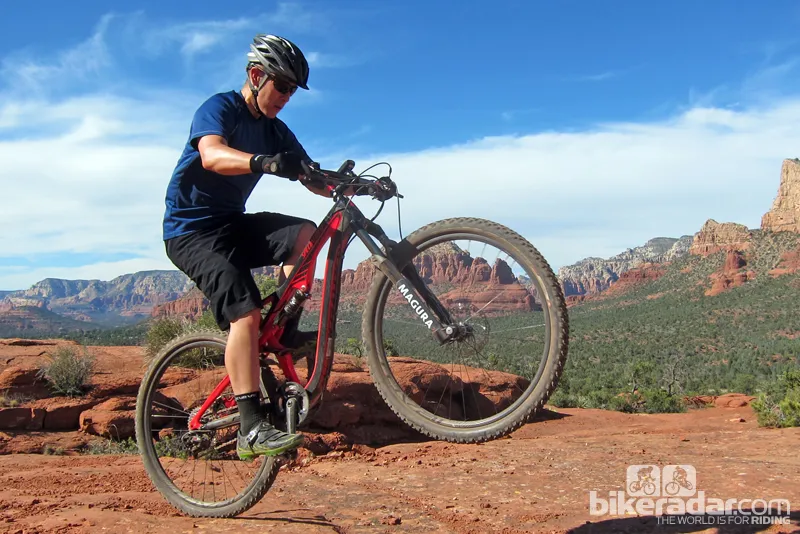
We rode away from a brief testing session in Sedona, Arizona mostly impressed
We wouldn't mind if eLECT would occasionally think a little faster, though. While 0.2 seconds doesn't seem like much, it equates to about 1.1 meters (about 3.6ft) when traveling at a modest 20km/h (12.4mph) – and there's plenty of room in that short distance for a significant impact on more technical trails. We also wished the threshold was user adjustable, which could help lessen the harshness of that first hit before the valve opens up.
Sedona's Slim Shady trail, for example, features several sections where you're climbing on relatively smooth ground, only to be confronted with a steeper, technical pitch. Charging into these with a head of steam is a good way to get up and over them quickly but in this situation, eLECT at first still thinks you want a firm front end when we would have rather had a little more squish to help maintain our momentum.
Ultimately, we'll reserve final judgment until we're able to spend more time on a production model but at least for now, eLECT seems very promising.
